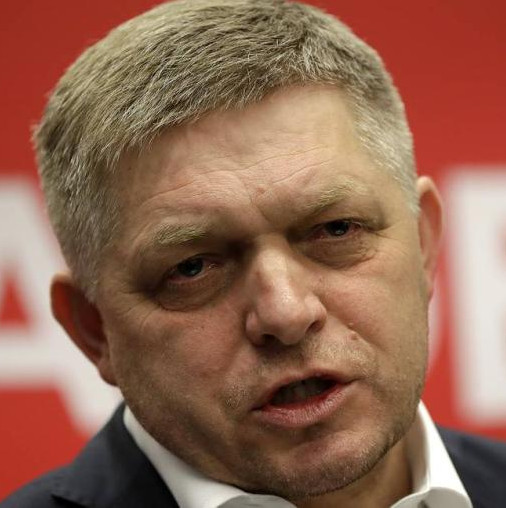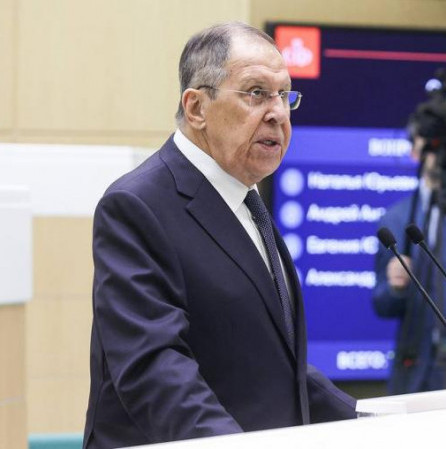
Britain was once again swept by a wave of anti-Russian prejudice. This time, the British authorities accused Russia of trying to steal data on the COVID-19 vaccine and interfering in the British election. Last week, the National Cyber Security Center of the United Kingdom (NCSC) indicted Moscow for attempts by Russian hackers led by the security services to purloin information about the creation of a vaccine against COVID-19 in the UK. In turn, British Foreign Secretary Dominic Raab issued a written statement to Parliament saying that Russia "almost certainly" tried to interfere in the British elections of 2019.
For the umpteenth time the British side has not provided high levels of proof. It is no accident that Russian President's Press Secretary Dmitry Peskov, commenting on the British side's claims, said the following in this regard: "We do not have information regarding who could have hacked pharmaceutical companies and research centers in the UK. We can say one thing — Russia has nothing to do with these attempts and we do not accept such accusations just like we don't accept yet another set of unfounded accusations of interference in the 2019."
Notably, Russian Foreign Ministry provided a similar reaction to accusations of "interfering" in the British election. In particular, addressing a briefing, official Foreign Ministry spokeswoman Maria Zakharova said: "The statement is so foggy and contradictory that it is almost impossible to understand it. If it’s inappropriate to say something then don’t say it. If you say it, produce the facts... There’s a feeling that we have a new loop of the ‘highly likely’ tactics."
It should be noted here that when serving as Foreign Minister, current British PM Boris Johnson used to state that the UK had nothing of value on Russia's interference in the 2016 Brexit referendum and other political processes in his country. Apparently, Johnson forgot his own words and ordered to come up with something new in order to blame Russia. That's why Moscow was accused of allegedly trying to steal information about the COVID-19 coronavirus vaccine development in Britain and interfering in last year's early parliamentary elections.
But why should London accuse Russia of interfering in the election, if Boris Johnson's ruling Conservative Party won it? As well as of attempts to steal coronavirus vaccine data after companies in Russia and Britain had previously agreed to cooperate in this sphere. Absurd and nothing else. The entire narrative of COVID-19 information purloin attempts is nothing but endeavors to tarnish the reputation of the Russian vaccine by those afraid of its success. After all, the real situation is that the Russian vaccine can potentially be the first to hit the market and may also be highly effective. The West, including in the UK, is apparently really uncomfortable about that. Hence all the crack-down on Russia.
As for Moscow's alleged interference in the British elections of 2019, this is a twice-told tale that London harps on about Russia's attempts to "interfere in the country's democratic processes." At the same time, the United States might well be the one behind revealing information to this effect, with its rich experience in similar, be it noted, uncorroborated allegations against Moscow. However, Britain seems eager to take over the US "initiative" in the anti-Russian hysteria. To this end, London is getting increasingly active to take a pot shot at our country.
The proof is that the British media is already engaged in this campaign. First pages of that country's tabloids are simply riddled with headlines like "Coronavirus war: Russians try to steal vaccine secrets" or "Russian spies attempt to steal British vaccine research materials".
It would be a different matter that such headlines appeared in the yellow sheets alone, which made quite a name for themselves publishing scandalous stories (much of them often ordinary hoaxes), but this underhand campaign involves well-respected media like The Financial Times as well. This business newspaper worked up the nerve to begin publishing articles about Russia's alleged theft of COVID-19 information right on the front page, despite both the virtual lack of evidence proving Moscow's guilt and any stance of a second party. This obvious consistency of such essentially different publications seems nothing less than part of a large-scale anti-Russian campaign orchestrated by a certain single center.
At the same time, it is entirely possible that the usual attacks against Russia may simply appear as a projection of problems Britain faces today. Primarily, this is the coronavirus pandemic and the Brexit challenge. As of today, the easiest way to distract public attention from these problems is to accuse Russia of trying to steal information on COVID-19 and interfering in the 2019 elections. The absence of evidence is besides the point – ordinary Britons have long ago woken up to the fact that Russia are the one to throw the book at.
Unfortunately, the British authorities are yet again walking into the same anti-Russian trap and thereby further undermining not only bilateral relations with Moscow, but their own prestige either. However, they don't seem to care about their own prestige all along ago...


